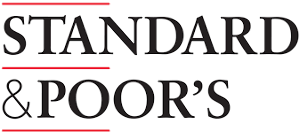Lending criteria to ease, rates to rise
Tight bank lending conditions are expected to ease as credit growth continues to slow, global ratings agency Standard & Poors says.
Thursday, February 22nd 2018, 12:24PM
by Miriam Bell

The agency has released its latest report on the outlook for New Zealand’s banking sector and it predicts a year of consolidation following an easing of housing related risks.
A marked slowdown in the housing market has led to a more recent slowdown in credit growth and that means the risks posed to the bank sector by housing are likely to have peaked.
As an example of slower credit growth, the report highlights that both loans to investors and interest-only loans are down significantly in both volume and value.
Investors’ loans dropped by 25% year-on-year, while interest-only loans were down by 20% year-on-year and down 40% from July 2016.
S&P Global Ratings credit analyst Andrew Mayes says the banks have had a tightening bias through 2016 and 2017, but credit conditions are expected to revert toward more neutral settings in 2018.
Some lending growth is probably necessary so now repricing has slowed, both in frequency and magnitude, while some discounts have emerged for higher quality loans, he says.
“While the slowdown in credit growth is set to continue, it should plateau as the tightening bias eases.
“We see the recent slowdown in credit growth steadying in 2018, with relatively measured growth thereafter.”
S&P expects that the absence of strong credit growth will balance the risk of a resurgence in house price growth.
Further, Maynes says the new government’s housing policy initiatives collectively signal that the previously favourable environment for investors has passed.
“They are a headwind for both credit growth and house price growth going forward.”
There is also another headwind coming in the form of higher rates as the global backdrop points to a tightening in policy, according to S&P.
Maynes says New Zealand banks are big users of overseas funding and rising rates mean higher funding costs going forward.
That’s likely to translate into margin pressure and, in turn, into higher local rates, not just fixed but floating, he says.
“The short-end of the yield curve appears anchored in the near term but further lengthening of total portfolio is expected, with upward repricing bias from major banks to resume.”
Overall, the S&P outlook for the banking sector is that its performance will remain strong in 2018, with margins consolidating and credit losses remaining very low.
Read more:
| « ANZ tightens lending controls following fraud case | Vincent Capital adds a South Island BDM » |
Special Offers
Comments from our readers
No comments yet
Sign In to add your comment
| Printable version | Email to a friend |



